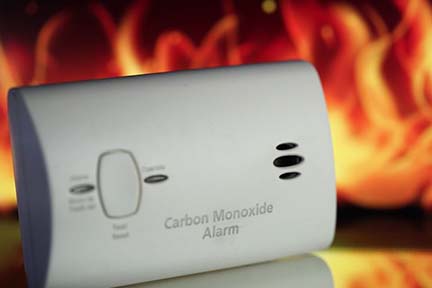Press Release FOR IMMEDIATE RELEASE: Nov. 8, 2024 CONTACT: Laina Stebbins, 517-241-2212, [email protected] Michigan residents reminded of carbon monoxide dangers; LANSING, Mich. – The Michigan Department of Health and Human Servies (MDHHS) and Michigan Department of Licensing and Regulatory Affairs (LARA) urge residents to protect their family by taking preventative measures against carbon monoxide (CO) poisoning and check CO detectors and fuel-burning appliances. Carbon monoxide is known as the “Invisible Killer.” You cannot see, taste or smell it, but it can be deadly when you breathe it in. CO is found where carbon-based fuels like gasoline, propane, charcoal, wood and others are burned. The gas can build up to deadly levels within minutes in enclosed or poorly ventilated spaces. “Carbon monoxide poisoning can happen to anyone if there are no safety measures in place,” said State Fire Marshal Kevin Sehlmeyer. “The only way to tell if it is present is with a carbon monoxide detector. Most CO poisonings take place at home and are caused by items that are not properly installed, cared for or vented like furnaces, water heaters, generators, grills, dryers, space heaters, fireplaces, chimneys and gas stoves. Having these appliances checked yearly by professionals will reduce CO poisoning from happening.” “Carbon monoxide poisoning symptoms are similar to the flu,” said Dr. Natasha Bagdasarian, chief medical executive. “Symptoms include fatigue, headache, nausea, vomiting, dizziness, drowsiness and confusion. Carbon monoxide poisoning can lead to coma and death, so these symptoms should not be ignored.” If you suspect you may be experiencing CO poisoning, or your CO detector alarm alerts, go outside immediately and call 911. Stay away from the enclosed space, even if you aren’t experiencing symptoms, until the fire department tells you it is safe to return. The Centers for Disease Control and Prevention (CDC) reports that each year approximately 100,000 people across the country visit the emergency department for accidental CO poisoning. In 2022, there were 727 Michigan emergency department visits for CO poisoning (MiTracking Data Portal). CO exposure may be particularly dangerous for:
CO poisoning is preventable. Here are some prevention tips to follow:
Additional CO poisoning and poisoning prevention information is available at the following sites: State of Michigan
National Visit https://Michigan.gov/ |


